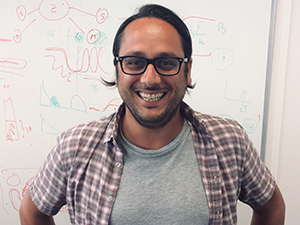Scientists have worked out how a protective element of our DNA helps prevent an abnormal genetic event that can lead to cells becoming cancerous.
They have shown exactly how telomeres – the protective caps that sit at the end of chromosomes – stop these thread-like structures from fusing together, which can cause harmful DNA rearrangements. By uncovering how this fusion is usually prevented, the researchers have moved a step closer towards determining how and why things can sometimes go wrong.
Through this work, the team has not only provided an explanation for previous findings in this area of research but also potentially opened the door to finding new ways to stop cancer from developing.
Researchers at The Institute of Cancer Research, London, led the study, which was primarily funded by Cancer Research UK. The findings were published in the journal Nature.
Telomeres have an important role
Telomeres are often compared to the plastic tips on shoelaces, where the laces represent chromosomes. Consisting of repeated sequences of nucleotides – the building blocks of DNA – they shield the ends of chromosomes from damage and help ensure that all of the DNA is replicated during cell division.
By clearly marking the ends of chromosomes, telomeres prevent them from being recognised as broken DNA. This could trigger DNA repair processes that result in chromosome fusion or lead to other genetic abnormalities. The risk of these changes, referred to as genomic instability, is associated with the development of cancer.
The fact that telomeres are central to many aspects of cancer means that scientists have long been interested in their role and what happens when they become defective.
Although previous studies had already demonstrated that telomeres block chromosome fusion through a process called classical non-homologous end joining (cNHEJ), it was not apparent how this was achieved. The scientists behind the new study decided to search for the answer.
Combining complementary techniques
Rather than using a completely new method, the team applied a range of different techniques to help them acquire the information needed. These included an innovative approach called reconstitution biochemistry, in which scientists assemble a small set of molecular components outside of the cell to recreate specific processes that occur inside it.
It was already known that cNHEJ is initiated when an enzyme called DNA-dependent protein kinase (DNA-PK) binds with the telomeres and various proteins. This study revealed that two proteins called RAP1 and TRF2 form a complex with DNA-PK to prevent cNHEJ from taking place. It also showed that this only occurs at the telomeres.
Additional processes must happen at telomeres for them to properly protect the chromosome ends from other DNA repair processes, and the researchers have already started working on identifying and understanding them.
A simple solution
First author Dr Patrik Eickhoff, a Postdoctoral Training Fellow in the Division of Cell and Molecular Biology at The Institute of Cancer Research (ICR), said:
“We are delighted to be able to provide a molecular explanation for how individual chromosomes are maintained in human cells. Blocking DNA-PK from working at telomeres stops chromosomes from fusing, preventing the genome from becoming extensively rearranged – a hallmark of the early stages of cancer.
“We hope this information will help us further our understanding of how cancer develops, which is crucial for developing new treatments.”
Senior author Dr Max Douglas, Group Leader of the Telomere Biology Group at the ICR, said:
“This study helps answer a fundamental question in chromosome biology and provides an explanation for previous findings in this field of research.
“Because of its ability to fuse different chromosomes, cNHEJ represents a major threat to stable chromosomes in human cells. We were surprised by the neat mechanism that these cells have evolved to solve the problem of how to stop cNHEJ at telomeres and how simple the solution is. It is elegant in its simplicity."
.tmb-propic-md.jpg?Culture=en&sfvrsn=c25d2b2f_9)
 .
.
